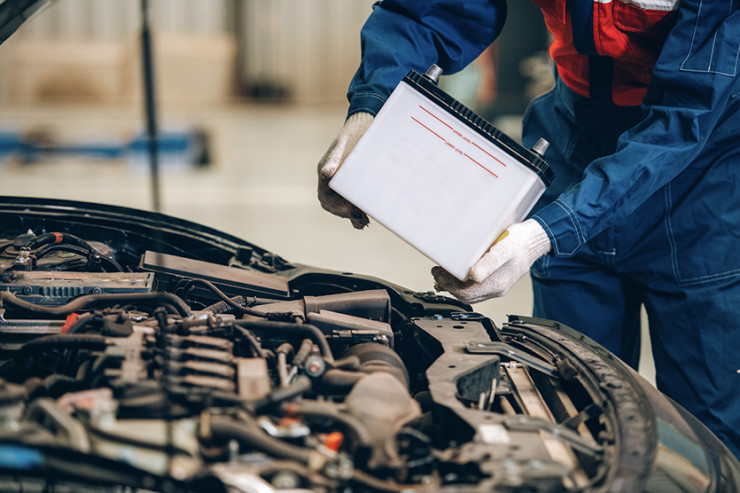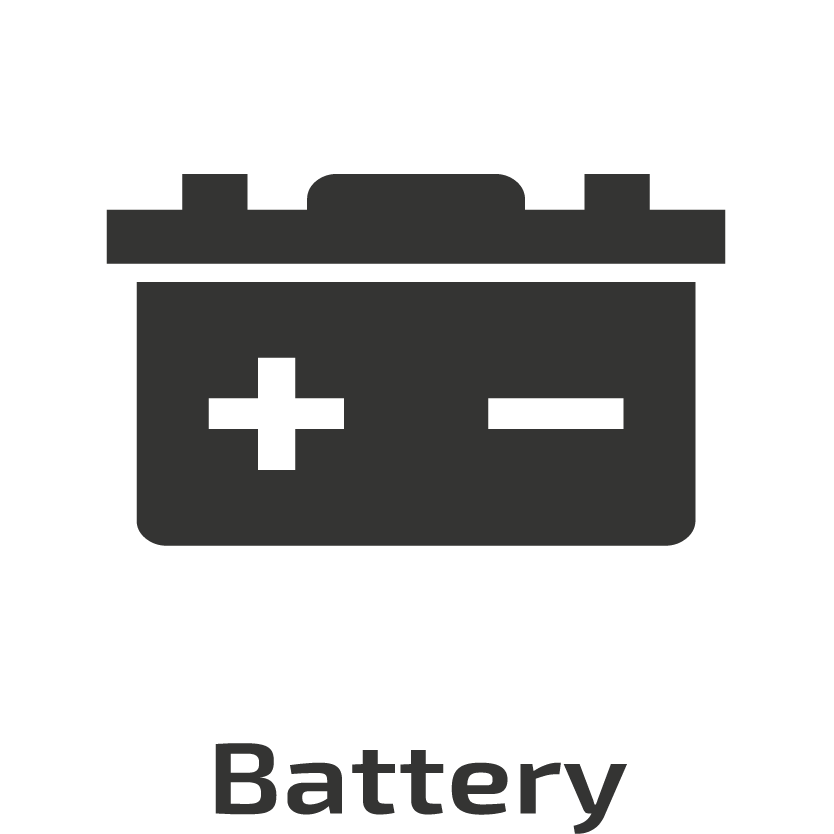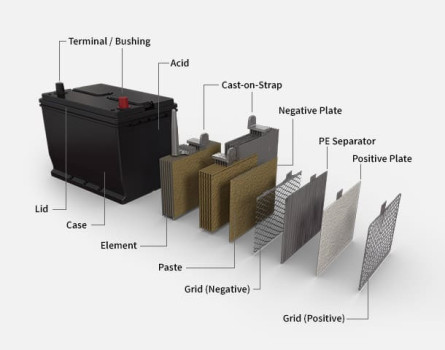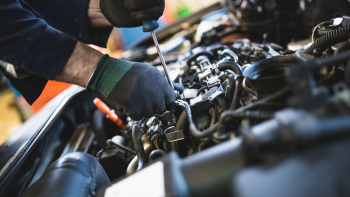Rolling Safely: A Comprehensive Roadmap for Selecting, Caring, and Upgrading Your Tires
Every journey begins with a single roll of the tire. Those unassuming, rubber companions beneath your vehicle are the unsung...

The car battery is an essential component of a vehicle, an energy storage device that is used to power the starter motor, ignition system and fuel system when the car is started. In India, the most commonly used car batteries are lead-acid batteries, which work by converting chemical energy into electrical energy.

The alternator of the car recharges the battery while the car is running, and it helps to maintain the charge level of the battery. In electric vehicles, the traction battery is used to power the electric motor and it is usually of higher voltage and is monitored by the PCM. It is important to note that the car battery should be checked and maintained regularly to ensure smooth operation of the vehicle and to avoid breakdowns due to a dead battery.
How do they work?
A car battery converts chemical energy into electrical energy through a chemical reaction within the battery. The anode and cathode, along with the electrolyte, are the main components of a car battery. The electrolyte, which is typically a mixture of water and sulphuric acid, acts as a conductor between the anode and cathode. When the battery is supplying electrical energy to the car, the lead in the anode reacts with the sulphuric acid in the electrolyte to form lead sulphate. At the same time, lead dioxide in the cathode reacts with hydrogen ions from the electrolyte to form water and lead sulphate. This chemical reaction generates electrical energy, which is used to power the car's starter motor, ignition system, and fuel system.
Image cc: autobatteries.com

The alternator is responsible for recharging the battery when the car is running. The alternator converts mechanical energy from the car's engine into electrical energy and uses it to charge the battery and power the car's electrical systems. The alternator is connected to the battery by a set of charging wires, and it constantly monitors the battery's voltage to ensure it stays at the optimal charge level.
Types:
A lead-acid car battery is a simple and reliable technology, and it's widely used in automobiles around the world. However, there are other types of batteries that can be used in cars, such as lithium-ion batteries which are more efficient, but more complex and less durable than the lead-acid batteries.
Maintenance:
Regular car battery maintenance is crucial to ensure smooth operation of the vehicle and to avoid breakdowns. Here are a few tips on how to maintain your car battery:
Check the battery water levels and terminals for corrosion regularly
Keep the battery clean and ensure proper ventilation
Avoid extreme temperatures, both hot and cold
Check the battery's charge level using a voltmeter
Have the battery and charging system checked by a professional at regular intervals
In case of a dead battery, jump-starting the car should be done properly to avoid any damage. Make sure to connect the jumper cables in the correct order, and let the car idle for a few minutes after jump-starting to allow the battery to charge.
It's important to note that a car battery's lifespan can be affected by various factors, such as usage patterns and climate conditions. Regular checkups and maintenance will help to extend the life of your battery and keep your vehicle running smoothly.
 Signs of a failing car battery:
Signs of a failing car battery:
A failing car battery can leave you stranded, so it's important to be aware of the signs that indicate it may need to be replaced. Here are a few common signs that a car battery may be failing:
The car is slow to start or won't start at all
The headlights or interior lights are dim when the car is idling
The battery warning light on the dashboard comes on
The car's electrical systems, such as the radio or power windows, are not working properly
The battery terminals are corroded or have a white powdery buildup
The battery is more than 3-4 years old and has been frequently used
It's critical to replace a car battery before it fails to avoid getting stranded. If you notice any of the above signs or have any doubts about the condition of your battery, it's best to have it checked by a professional. Regular maintenance and replacement of the battery at the right time will ensure that your vehicle stays reliable and runs smoothly.
Conclusion:
A car battery is an essential component of a vehicle that is used to power the starter motor, ignition system and fuel system when the car is started. Regular maintenance and check-ups of the battery are important to ensure smooth operation of the vehicle and to avoid breakdowns due to a dead battery. By understanding the basic working principle of a car battery, the signs of a failing battery and how to properly jump-start a car, you can keep your vehicle running smoothly and avoid unexpected breakdowns. It's important to remember that a car battery's lifespan can be affected by various factors, such as usage patterns and climate conditions, so it's always best to have the battery and charging system checked by a professional at regular intervals. Regular maintenance and replacement of the battery at the right time will ensure that your vehicle stays reliable and runs smoothly. We encourage our readers to take good care of their car batteries, to ensure they last as long as possible.
Choose it right:
When it comes to choosing the right car battery brand, it's important to consider the specific needs of your vehicle and your usage patterns. Here are a few recommendations for car battery brands:
Exide: Exide is one of the most popular car battery brands in India. They offer a wide range of batteries for different types of vehicles, including passenger cars, commercial vehicles, and industrial vehicles. They are known for their reliability and durability.
Amaron: Amaron is another popular car battery brand in India. They offer a wide range of batteries for different types of vehicles and are known for their long-lasting performance.
Tata Green: Tata Green is a popular brand for car batteries in India, known for their high-quality batteries at an affordable price. They have a range of batteries that are suitable for different types of vehicles and are known for their reliability.
SF Sonic: SF Sonic is a well-known car battery brand in India, known for their high-quality batteries at an affordable price. They offer a wide range of batteries for different types of vehicles and are known for their reliability and durability.
When choosing the right battery for your vehicle, it's important to consider the vehicle's make and model, the climate conditions in your area, and your usage patterns. It's always best to consult with a professional or the vehicle's manual before purchasing a new battery. Additionally, some batteries have additional features such as maintenance-free, high CCA, and high RC. It's important to choose the one that is suitable for your vehicle and usage pattern.
Side Notes:
RC stands for Reserve Capacity, it is a measure of how long a car battery can sustain a minimum electrical load and it is usually measured in minutes. Reserve capacity is the number of minutes a new, fully charged battery at 80°F will discharge 25 amps before dropping below a minimum voltage of 10.5 volts. It is a way to measure how long the battery will last in case the alternator fails. The higher the RC, the more time the battery can keep the vehicle running without recharging. It's important to note that RC rating is only relevant to lead-acid batteries, and it's not applicable to lithium-ion batteries. When choosing a car battery, it's important to ensure that it has an RC rating that meets or exceeds the manufacturer's recommendations for your vehicle's make and model.
CCA stands for Cold Cranking Amps. It is a measure of a car battery's ability to start an engine in cold temperatures. It is defined as the amount of current a battery can deliver at 0°F for 30 seconds and maintain a minimum voltage of 1.2V per cell (7.2V for a 12V battery). The higher the CCA rating, the better the battery's ability to start the engine in cold temperatures. It is important to note that CCA rating is only relevant to lead-acid batteries, and it's not applicable to lithium-ion batteries. When choosing a car battery, it's important to ensure that it has a CCA rating that meets or exceeds the manufacturer's recommendations for your vehicle's make and model, especially if you live in a colder climate.
The car battery is an essential component of a vehicle, an energy storage device that is used to power the starter motor, ignition system and fuel system when the car is started. In India, the most commonly used car batteries are lead-acid batteries, which work by converting chemical energy into electrical energy.
Comments your thoughts